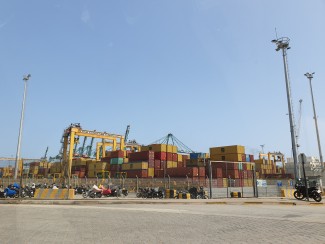Increasing agricultural proceeds, processing and marketing are critical in Malawi’s development plans
Christina Chatima, Director of Trade at the Malawi Ministry of Industry, Trade and Tourism, discusses the country’s efforts to advance agro-processing and exports.
What is Malawi’s current agricultural trade strategy, and what is happening to make it work?
Malawi developed a diversification strategy in 2013 taking into consideration the increased trade imbalance, and we implemented the National Export Strategy to deal with issues relating to enhancing our productive capacity.
The Enhanced Integrated Framework (EIF) and National Smallholder Farmers’ Association of Malawi (NASFAM) anchor farm project has been very successful in view of the fact that it has supported and implemented government priorities in terms of implementation of the National Export Strategy.
The good thing with the anchor farm work is that it took into consideration what the government agenda is all about, and it has supported quite a number of smallholder farmers and most of them are woman entrepreneurs.
We are looking at groundnuts and also soya, so in the past few years we have been working closely with NASFAM, and we have seen enhanced productive capacity has been achieved. And not only that, the farmers that were involved have benefited a lot in the sense that they have done this kind of planting of new crops, and in terms of the income that they are getting their poverty levels have really gone down and they are able to support children going to school – and that is part of the national agenda to deal with poverty.
What other kinds of results have you seen?
The economy has benefited very much. The Ministry is working closely with the Malawi Investment and Trade Centre (MITC) to enhance the markets for some of these products. Following the anchor farm piloting, NASFAM has been able to penetrate other markets apart from their existing ones.
We have enhanced our exports to the region, for example South Africa is absorbing most of the groundnuts that we produce. And not only that, Zimbabwe is also one of the regional markets that is able to absorb our groundnuts as well as the soya that we have been producing through the project. MITC, with EIF, has opened up an office in Mozambique. That office has assisted with the marketing of different Malawi products, and we have seen exports of a lot of agro-processed products to the region.
So this partnership has had a very big impact in Malawi in terms of opening markets as well as enhancing our productive capacity.

Can you speak to Malawi’s export strategy?
Historically, for Malawi, like other countries in Africa or in the region, we mostly concentrate on exports of raw products. But if you look at raw products they don’t provide the necessary value that you’d want to get. We have chosen to go the industrialization path in the sense that we want to add more value to what we produce. So in this case we have prioritized the oil seed products. So adding more value to groundnuts so you produce cooking oil and other byproducts; adding value to soya beans you produce soy cake, which has quite a number of uses. In terms of diversification, that is the path the government has undertaken.
How do you feel about this new-ish path?
My feeling is that we are making progress. We have realized that after negotiating all these markets that these markets need products, and it means we need to enhance our productive capacity. So in this case we are not only talking about working in isolation, we are looking at how do we work together in these value chains. There are other important players like the Ministry of Agriculture – they play a very big role. In terms of the markets, MITC helps us find good markets. And at the national level we are looking at providing a conducive environment for the private sector to do business.
So what I’m trying to say is that all these players, they need the effort. We all need to work together to achieve the diversification and industrialization path that the government has decided to undertake.
Why is agriculture and agro-processing so important for Malawi’s development?
Agriculture is very pertinent to Malawi – if you look at the products that we have been producing in the past the concentration has been on a very few products like tobacco and tea. And these products and in particular tobacco are facing major challenges at the international level, and that is why the government came up with a strategy to guide the economy in terms of what alternative products we could venture into in order to be competitive on the international market.
So agriculture has been quite important to Malawi because traditionally most of the products that we have relied on have come from this particular sector. Now we are saying we need to add value.
This interview has been edited and condensed for clarity.
If you would like to reuse any material published here, please let us know by sending an email to EIF Communications: eifcommunications@wto.org.



